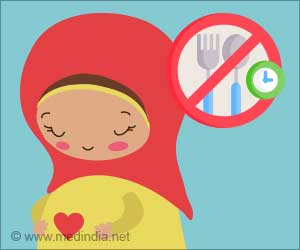Discover essential habits to maintain health after Ramadan, including hydration, balanced nutrition, exercise, sleep, and occasional fasting.
- Optimize nutrition, hydration, and exercise post-Ramadan
- Prioritize quality sleep and balanced meals for sustained well-being
- Incorporate occasional fasting to support metabolic health and weight management
Is Ramadan fasting related to health outcomes? A review on the related evidence
Go to source). The fasting experience of Ramadan involves a unique rhythm of eating and sleeping, with altered meal timings and reduced food intake. These changes impact physiological processes such as metabolism, hydration, and sleep patterns. Over the month, individuals adapt to these adjustments, undergoing beneficial physiological changes that support the fasting regimen.
Post-Ramadan habits can extend the health benefits of fasting. #healthyhabits #wellnessjourney #medindia’
Transitioning to Post-Ramadan Health: Essential Habits for Wellness
As Ramadan concludes with the celebration of Eid al-Fitr, it’s important to transition back to regular eating patterns and daily routines effectively. This period presents an opportunity to maintain and extend the health benefits gained during Ramadan, ensuring continued wellbeing beyond the fasting month.Maintaining a healthy lifestyle after Ramadan is essential to sustain the benefits gained from fasting and to support overall well-being. Here are five key habits to focus on:
Replenish and Rebalance: Prioritizing Hydration After Ramadan
After Ramadan, prioritize adequate hydration by consuming at least 10 glasses of water daily, as recommended by the World Health Organization. Include water-rich foods like watermelon and cucumber to help stay hydrated and regulate bodily functions. Reintroduce fluids gradually to restore electrolyte balance and support kidney function, especially crucial after fasting.
Nourish Your Body: Embracing a Balanced Post-Ramadan Diet
Opt for a well-rounded, whole-foods-based diet post-Ramadan. Incorporate whole grains, leafy greens, fruits, lean proteins, nuts, and seeds to provide essential nutrients. Avoid excessive sugar and fried foods, focusing instead on nourishing meals that support digestion and energy levels. Consider smaller, more frequent meals to ease digestion and aid in adjusting to new eating patterns.
Move Your Body: Reactivate Your Exercise Routine
Reestablish a consistent exercise routine post-Ramadan. Aim for at least 30 minutes of moderate physical activity, such as walking, cycling, or swimming, several times a week. Exercise helps maintain muscle strength, cardiovascular health, and energy levels. Gradually reintroduce physical activity to readjust to a regular routine.
Rest and Recharge: Prioritizing Quality Sleep
Prioritize sufficient and quality sleep to support overall health and well-being. Aim for 7-9 hours of sleep per night and establish a calming bedtime routine. Reestablishing a regular sleep schedule helps in restoring energy levels and maintaining optimal bodily functions.
Sustaining Benefits: Exploring Occasional Fasting Practices
Consider incorporating occasional fasting into your routine, such as fasting on Mondays and Thursdays. This practice offers health benefits like improved metabolic health and weight management. However, ensure fasting is safe and consult with a healthcare professional if needed, especially for individuals with health conditions.
Embrace the Journey: A Sustainable Post-Ramadan Lifestyle
The conclusion of Ramadan fasting marks a beautiful transition – a return to familiar routines while carrying forward the spiritual and physical benefits of the holy month. By incorporating these five key habits – hydration, balanced diet, regular exercise, quality sleep, and occasional fasting – you can create a sustainable foundation for long-term well-being.Remember, the focus is on gradual reintroduction and mindful practices. Listen to your body’s cues and adjust accordingly.
Reference:
- Is Ramadan fasting related to health outcomes? A review on the related evidence - (https://www.ncbi.nlm.nih.gov/pmc/articles/PMC4274578/)
Source-Medindia












